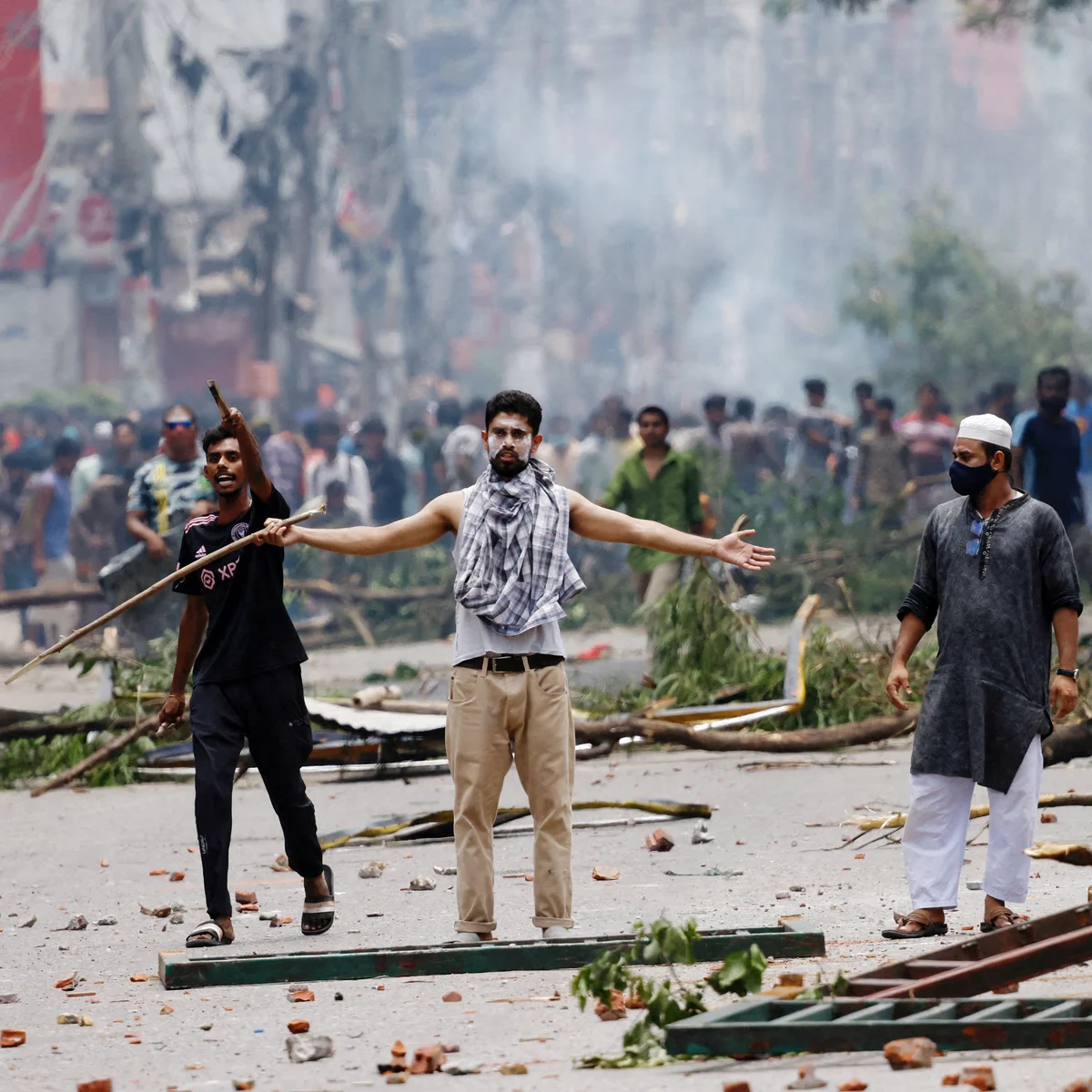In recent weeks, Bangladesh has witnessed an eruption of student-led protests, primarily driven by the contentious reinstatement of a job quota system. This system reserves 30% of government jobs for descendants of the 1971 liberation war veterans. Initially intended to honor the sacrifices of these families, the quota has increasingly been viewed as a barrier to fair employment opportunities, igniting widespread discontent among the country’s youth.
The protests were triggered by a High Court decision to reinstate the quota system, overturning a 2018 decision by Prime Minister Sheikh Hasina’s government to abolish it. The initial abolition followed similar student protests that argued for a merit-based system. With youth unemployment alarmingly high, the reinstatement was seen as a step back, exacerbating frustrations. Critics argue that the quota system unfairly benefits the ruling party’s supporters, further entrenching political patronage and corruption.
What began as peaceful demonstrations soon escalated into violent confrontations. Students clashed with police and members of the student wing of the ruling Awami League, resulting in significant casualties. Reports indicate over a hundred deaths and numerous injuries, with police using rubber bullets and tear gas to disperse crowds. The government imposed curfews and internet blackouts in an attempt to quell the unrest, measures that only deepened the protesters’ resolve.
Prime Minister Sheikh Hasina’s response has been firm, condemning the violence but also standing by the quota system. She labeled the protesters as “razakar,” a term historically associated with those who collaborated with Pakistani forces during the independence war, further inflaming tensions. The government has called for patience, urging students to await a Supreme Court verdict on the matter. However, this has done little to appease the demonstrators, who view the judicial process with skepticism.
The international community has closely monitored the situation. Human rights organizations have condemned the violence and called for restraint from both sides. The United States and the European Union have expressed concerns over the government’s heavy-handed approach and urged for peaceful dialogue. The unrest has also sparked discussions on the broader issues of governance and human rights in Bangladesh, with many calling for structural reforms to address systemic inequalities.
The student protests have significant implications for Bangladesh’s political landscape, particularly with elections on the horizon. Prime Minister Hasina’s government, in power since 2009, is facing unprecedented challenges. The opposition, although fragmented, is capitalizing on the unrest to galvanize support. The protests underscore deep-seated discontent with the current administration’s policies and its perceived authoritarian tendencies. As the elections approach, the handling of these protests could be a pivotal factor in the electoral outcome.
Beyond the immediate trigger of the job quotas, the protests reflect broader socio-economic grievances. Bangladesh, once heralded as an economic success story, is grappling with stagnating growth, high inflation, and shrinking foreign reserves. Nearly a fifth of the population is unemployed or out of education, exacerbating the frustration among the youth. The demand for a merit-based system is not just about jobs; it is a cry for a fairer, more transparent governance structure that offers real opportunities for all.
The student protests in Bangladesh are a potent reminder of the country’s underlying socio-political tensions. While the immediate focus is on the job quota system, the unrest is symptomatic of broader issues related to governance, corruption, and economic disparity. How the government navigates this crisis will have profound implications for its political future and for the stability of Bangladesh as a whole. As the world watches, the need for dialogue, reform, and genuine political will to address these challenges has never been more critical.
Source link
